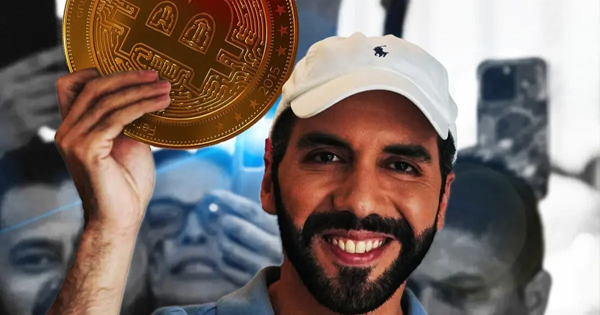El Salvador Defies IMF, Continues to Increase Bitcoin Reserves – Escalating Tensions

While the International Monetary Fund (IMF) continues to express deep concerns, El Salvador is still steadfast in expanding its national Bitcoin reserves, further straining the financial relationship between the Central American country and the global lender.
El Salvador Still “Buying” Despite Barriers
Just hours after the IMF announced plans to tighten financial conditions to prevent El Salvador from increasing its BTC holdings, the National Bitcoin Office of El Salvador publicly announced that the country had just purchased 8 more BTC within a week, worth nearly $870,000, bringing its total BTC holdings to 6,190.18 BTC — equivalent to about $673 million at current market prices.
The move comes as the IMF has just approved a $120 million loan from El Salvador, part of a $1.4 billion overall loan package to help the struggling economy recover.
Conflict continues: Bitcoin and IMF loan conditions
The conflict between El Salvador and the IMF is not new. Tensions began in 2021, when El Salvador became the first country to recognize Bitcoin as legal tender. Despite warnings from the IMF about financial risks and macroeconomic stability, President Nayib Bukele did not back down. He even publicly announced a “buy 1 BTC a day” strategy as a long-term commitment to the digital currency.
In an effort to settle the matter, El Salvador amended its Bitcoin Law in 2025, removing the mandatory use of Bitcoin in payments and moving to a voluntary acceptance model. However, the government has continued to buy Bitcoin, which the IMF considers to be in violation of the spirit of the agreed reform program.
How will the IMF respond?
While it has no legal power to stop El Salvador from buying more Bitcoin, the IMF has several tools at its disposal to exert pressure. Specifically:
Delay disbursement of loans under the $1.4 billion package, including $120 million awaiting formal approval from the IMF Executive Board.
Set stricter conditions for subsequent disbursements, such as forcing El Salvador to stop accumulating Bitcoin or to comply with more transparent reporting and auditing procedures for cryptocurrency transactions.
Indirectly impact other financial institutions, such as the World Bank, to limit international capital flows to El Salvador, increasing the risk of financial isolation of the country.
A Challenge to the Traditional Financial System
The IMhF acknowledges that El Salvador has made some progress on fiscal reforms, but the Bitcoin issue continues to be a major sticking point in the relationship between the two sides. With President Bukele’s strong commitment to making Bitcoin part of his long-term growth strategy, the confrontation between El Salvador and the IMF is likely to continue.
In the meantime, observers are closely watching to see whether this “Bitcoin nation” model can survive and thrive under pressure from global financial institutions — or whether it will become a costly lesson for other countries considering following a similar path.
